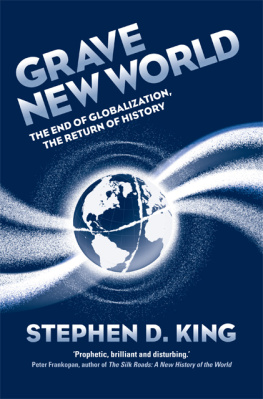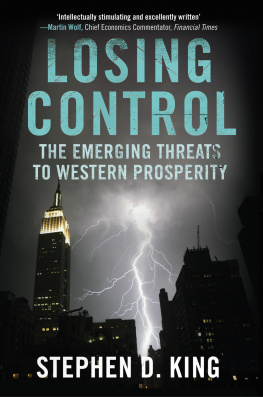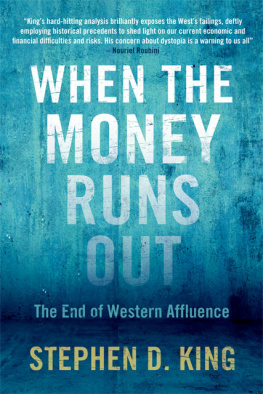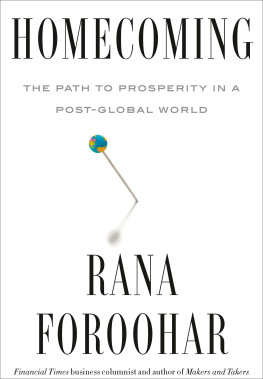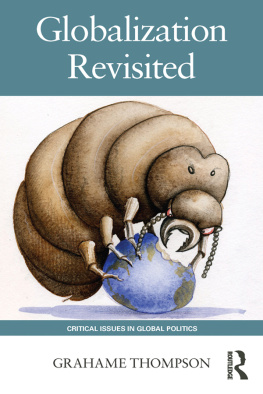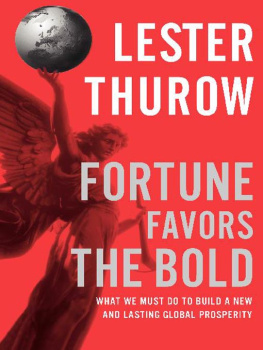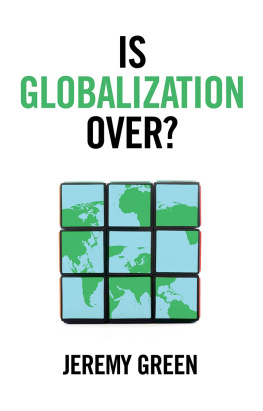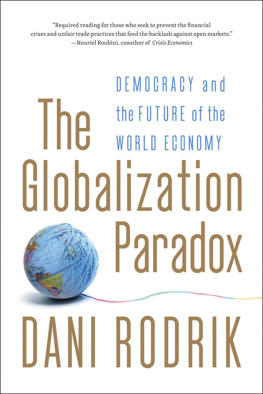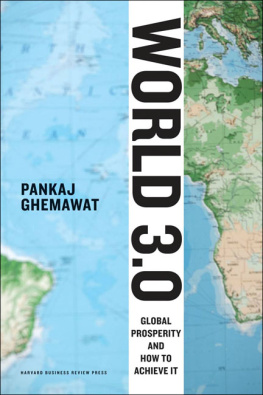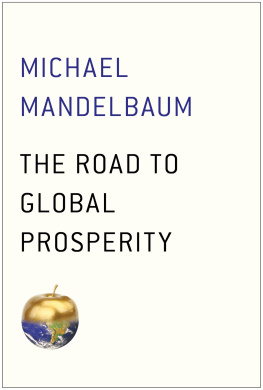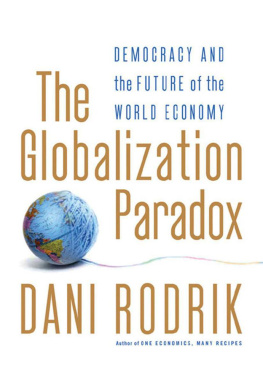GRAVE NEW WORLD

Copyright 2017 Stephen D. King
All rights reserved. This book may not be reproduced in whole or in part, in any form (beyond that copying permitted by Sections 107 and 108 of the U.S. Copyright Law and except by reviewers for the public press) without written permission from the publishers.
For information about this and other Yale University Press publications, please contact:
U.S. Office:
Europe Office:
Set in Minion Pro by IDSUK (DataConnection) Ltd
Printed in Great Britain by TJ International Ltd, Padstow, Cornwall
Library of Congress Control Number: 2017936404
ISBN 978-0-300-21804-6
A catalogue record for this book is available from the British Library.
10987654321
To Yvonne, Helena, Olivia and Sophie
CONTENTS
PROLOGUE
A Victorian Perspective on Globalization
we have now reached the third stage in our history, and the true conception of our Empire.
What is that conception? As regards the self-governing colonies we no longer talk of them as dependencies. The sense of possession has given place to the sense of kinship. We think and speak of them as part of ourselves, as part of the British Empire, united to us, although they may be dispersed throughout the world, by ties of kindred, of religion, of history, and of language, and joined to us by the seas that formerly seemed to divide us. But the British Empire is not confined to the self-governing colonies and the United Kingdom. It includes a much greater area, a much more numerous population in tropical climes, where no considerable European settlement is possible, and where the native population must always outnumber the white inhabitants Here also the sense of possession has given way to a different sentiment the sense of obligation. We feel now that our rule over these territories can only be justified if we can show that it adds to the happiness and prosperity of the people
In carrying out this work of civilization we are fulfilling what I believe to be our national mission, and we are finding scope for the exercise of those faculties and qualities which have made us a great governing race
No doubt, in the first instance, when those conquests have been made, there has been bloodshed, there has been loss of life among the native populations, loss of still more precious lives among those who have been sent out to bring these countries into some kind of disciplined order [but] You cannot have omelettes without breaking eggs; you cannot destroy the practices of barbarism, of slavery, of superstition, which for centuries have desolated the interior of Africa, without the use of force Great is the task, great is the responsibility, but great is the honour: and I am convinced that the conscience and the spirit of the country will rise to the height of its obligations, and that we shall have the strength to fulfil the mission which our history and our national character have imposed upon us.
the tendency of the time is to throw all power into the hands of the greater empires But, if Greater Britain remains united, no empire in the world can ever surpass it in area, in population, in wealth, or in the diversity of its resources
Extracts from a speech by Joseph Chamberlain, Secretary of State for the Colonies, at the annual dinner of the Royal Colonial Institute,
31 March 1897
INTRODUCTION
The Andalucan Shock
ONE-WAY TRAFFIC
Globalization is often regarded as one-way traffic. In the modern age, we think of extraordinary advances in technology that allow us to connect in so many remarkable and increasingly inexpensive ways. We can communicate verbally and pictorially through WhatsApp, Twitter and Facebook. We can talk to each other via FaceTime and Skype. We can search for recipes and the structure of the human brain through Google. We can purchase chicken madras and salmon nigiri over the internet and have them brought to our homes via local delivery services. We can stream music for free thanks to Spotify and watch our favourite artists and cat videos on YouTube or Vevo. We can download television programmes and movies to watch at our convenience. We can more easily pry into the affairs of the rest of the world (and, equally, the rest of the world can more easily pry into our affairs).
Seen through these technological advances, it is easy to believe that globalization is inevitable; that distances are becoming ever shorter; that national borders are slowly dissolving; and that, whether we like it or not, we live in a single global marketplace for goods, services, capital and labour.
ITS NOT JUST ABOUT TECHNOLOGY
Technology alone, however, does not determine globalization, and nor does it rule out competing versions of globalization at any one moment in time. If technology was the only thing that mattered, the Western Roman Empire among other things, an incredibly sophisticated technological and logistical infrastructure would never have come to an ignominious end in ad 476; the Chinese, with their superior naval technologies, would have been busily colonizing the Americas in the early sixteenth century, preventing Spain and, by implication, the rest of Western Europe from gaining a foothold; the British Empire would today still be thriving, thanks to the huge advantages it gained from the Industrial Revolution; the Cold War which ultimately offered two competing versions of globalization associated with an uneasy nuclear stand-off would never have happened; and todays failed states suffering from disconnections both internally and with the rest of the world would be a contradiction in terms. Globalization is driven not just by technological advance, but also by the development and demise of the ideas and institutions that form our politics, frame our economies and fashion our financial systems both locally and globally. When existing ideas are undermined and institutional infrastructures implode, no amount of new technology is likely to save the day.
Our ideas and institutions shift with alarming regularity. Spanish conquistadors of the early sixteenth century bounty-hunters hell bent on extracting silver from the New World, regardless of the human cost would have been surprised to discover that Spain, at one point Europes superpower, is now one of the poorer Western European nations. The Ottomans of the sixteenth and seventeenth centuries who had threatened to conquer Vienna and, by implication, much of the rest of Europe would have been amazed to see how their empire, which had stretched from the Balkans into the Middle East and North Africa, completely imploded after the First World War (even if the seeds of its downfall were sown many years before). Victorians would be shocked to find that their beloved British Empire which provided the essential foundations for nineteenth-century globalization had more or less disappeared by the late 1940s, by which time the UK itself was on the brink of bankruptcy. Those many fans of the Soviet economic system during the 1930s Depression years would doubtless be astonished to discover that the entire edifice began to crumble following the fall of the Berlin Wall in 1989.
SOUTHERN SPAIN
Even when patterns of globalization endure for many centuries, they can break down remarkably quickly, leading to dramatic changes in fortune. Consider, for example, the history of Andaluca in southern Spain, a story that veered from one seemingly permanent political structure (Islam) to another (Christianity) within just a handful of years.
In AD 711, a Muslim Berber force travelled from North Africa across the Mediterranean to reach southern Spain. Six years later, and thanks to the Berbers defeat of the hitherto-ruling Christian Visigoths, Crdoba had become the capital of what was known as al-Andalus. The conquering Moors then set about building their symbols of power. In 784, construction began on the Grand Mosque of Crdoba. By 987 and following three further development stages the mosque was complete. A truly remarkable building, it was designed above all to be a symbol of lasting Islamic dominance. Yet, following the defeat of the Almoravids by the Almohads, the centre of Islamic power later transferred from Crdoba to Seville, just under a hundred miles away. Inevitably, a new mosque was required and, in 1171, it was provided: topped off by its minaret, known today as the
Next page
